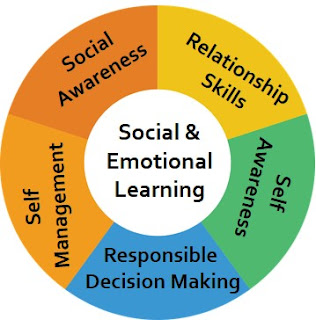Strategies To Embed Social Emotional Learning in Schools

This article was written originally for MultiBriefs Education . In a recent Edsurge blog article, Giancarlo Brotto makes a strong case for why the future of education depends on social emotional learning (SEL), which he sees as a critical indicator to predict college and career readiness. He writes, “social and emotional abilities are said to be indicators of how well a person adjusts to his or her environment, adapts to change and, ultimately, how successful she or he will be in life.” He does on to suggest that early success mastering SEL skills and competencies helps young children develop into happy, fulfilled, contributing members of society. Brotto went on to reference this “Ready to Lead,” Organization for Economic Co-operation and Development (OECD) report which was based on a national principal survey that looked at how SEL prepares children. The report suggests data that supports the need for SEL in schools, such as a 2011 meta-analysis that found that “students who re
